
Get in Touch with Your Id, Ego and Super-ego: Learn Advanced German by Reading Philosophy
Freud, Marx and Nietzsche are big names.
But do you know exactly why you may have heard of them?
Over the centuries, Germany has been pretty big on its philosophy and critical thinking. Many of its greatest thinkers and philosophers have been central to analytic and continental traditions within philosophy.
But have you ever thought about reading the original German versions?
It’s really a grand idea, and here’s why:
Why Reading Philosophy Will Help Your Advanced German
Reading philosophy can work wonders on your German. Advanced readers can really get down with some complicated grammar structures and difficult vocabulary.
One of the problems we have with all philosophy—even English language philosophy—is that philosophers often create their own words or phrases. It makes sense if you think about it: If they come up with a theory or new way of thinking, we might not have a word in our language to fully convey their ideas. Reading the original German will show you the correct context for all these nuanced terms, and you’ll be able to understand them better. You’ll also understand the text fully, as some of the meaning can be slightly lost through translation.
There are loads of translations for all German philosophy books, texts and lectures, so you have support available in your native language whenever you need it.
Getting to grips with these sorts of texts can help you improve your thinking skills. If you ever tire of fiction, philosophy can be an interesting form of non-fiction to turn to.
How to Learn Advanced German by Reading Philosophy
Start with modern philosophers and work your way back. German philosophers have been writing (and thinking) for hundreds of years. Just like with English writing, the further back you go, you’re likely to find the language hard to navigate because they are writing in an archaic fashion. As you work your way back through history, you’ll find the language getting more challenging, but at a manageable pace.
Write down new vocab words. If you feel you've heard this a million times, that shows how important it is to keep updating your new vocab list! Using an online thesaurus source to come up with German synonyms lets you stay in German.
Pair reading with writing. Turn this into a writing exercise. For instance: Take a really complex sentence from the text and try and rewrite it in simpler sentences. You could then even use these simpler sentences to explain the theories in the text to an intermediate German learner.
So who are the best German philosophers to get started with?
10 Fascinating German Philosophers for Advanced Learners to Read
1. Friedrich Nietzsche
Nietzsche is closely associated with nihilism, which is basically the theory that there is no meaning or purpose to anything. One of his key phrases was der Übermensch, commonly translated as “superman” or “overman.” Nietzsche spoke of Übermensch as the ultimate goal for humanity; an “overman” is someone who would risk everything so that humanity could enhance itself.
This is clearly shown in his book “Also Sprach Zarathustra” (Thus Spoke Zarathustra), one of the best books for beginners and a great introduction to Nietzsche’s way of thinking.
2. Sigmund Freud
Freud is probably best known for his work in psychoanalysis. Even though most of his ideas and theories have long since been disregarded, he is still known as a pioneer in psychoanalytical therapy.
There are three key phrases to know when reading Freud’s work: Das Es (the id), Das Ich (the ego) and Das Über-Ich (the super-ego). According to Freud, these three parts make up our psyche and dictate how we make moral decisions. For a clearer explanation, and look into Freud’s methods of therapy, check out “Studien über Hysterie” (Studies on Hysteria).
3. Karl Marx
Marx was one of the main thinkers in the early communist movement. He even created his own communist theory, known as Marxism. His two most popular books are “Das Kapital, Kritik der politischen Ökonomie” (Capital: Critique of the Political Economy) and “Manifest der kommunistischen Partei” (The Communist Manifesto), the former being the best starting point for first time Marx readers.
One of the most important phrases to take away from reading Marx is entfremdete Arbeit (alienation or alienated labor), a theory that underpins all his philosophy on workers and labor.
4. Ludwig Feuerbach
Critiquing Christianity was one of Feuerbach’s favorite pastimes. He was writing a few decades before the previous three philosophers in this list, so you might want to wait and read him once you’ve gotten to know either Marx, Freud or Nietzsche, just to get your German used to philosophical writings.
When you feel ready for Feuerbach’s critiques of religion, I recommend starting with “Das Wesen Des Christentums” (The Essence of Christianity). You’ll regularly see the phrase Das Wesen (the essence) in Feuerbach’s writing, as he was really keen to get to the bottom of religion!
5. Theodor W. Adorno
Adorno was one of the Frankfurt School’s main members. This wasn’t a school where pupils and students went to learn—it was a school of thought within social theory and philosophy, based around critical theory.
Adorno’s specialist subject was Positivismus (Positivism). This is a theory that positive facts—ones we gain through our experiences—are exclusive sources of authoritative knowledge. To get to know Adorno and all his theories, try out “Prismen” (Prisms).
6. Erich Fromm
Another significant member of the Frankfurt School,Fromm was a humanistic philosopher as well as social psychologist and psychoanalist. If you enjoy reading Freud, then Fromm is a great philosopher to move on to, as he studied the life and work of Freud though most of his work.
One of Fromm’s important theories is character orientation, or Charakterorientierung. He touches on this in “Psychoanalyse & Ethik” (Psychoanalysis & Ethics), which is also a relatively easy read to start off with.
7. Moses Mendelssohn
Okay, now we’re getting to some really old philosophers. Mendelssohn was active in the 18th century. He came from a Jewish background which influenced his main interest: Jewish philosophy.
He was a key thinker in the Haskala movement, known in English as the “Jewish Enlightenment.” One of his most well-known works is “Phädon oder über die Unsterblichkeit der Seele,” often translated as “Phaedon: Or the Death of Socrates.”
8. Georg Wilhelm Friedrich Hegel
Hegel has influenced so many fellow German philosophers, especially thanks to his part in theEnlightenment movement. Some of his theories are still highly regarded to this day, including his idea of Herrschaft und Knechtschaft (Master-Slave Dialect).
For a great insight into his work, check out his collection of lectures: “Vorlesungen über die Philosophie der Weltgeschichte” (“Lectures on the Philosophy of World History”).
9. Immanuel Kant
Another influential philosopher of the Age of Enlightenment, Kant is one of the 18th century’s most influential thinkers and has left his mark on most strands of philosophy.
He is probably best known for his writing on the kategorischer Imperativ (categorical imperative), a system for making moral decisions. One of his most interesting works is “Kritik der reinen Vernunft” (Critique of Pure Reason).
10. Walter Benjamin
Benjamin is possibly the most difficult philosopher to read on this list. He was known for being an eclectic thinker, so he combines an awful lot of ideas into such a short space! He has dabbled in many different strands of philosophy, but most notably western Marxism and aesthetic theory.
He wrote widely about Verfremdungseffekt (distancing effect) and his best text to start off with is “Über den Begriff der Geschichte” (“Theses on the Philosophy of History”).
And there are a whole lot more German philosophers out there. Once you get to know all the Germans, why not branch out and read some other thinkers—a huge amount of international philosophy has been translated into German!
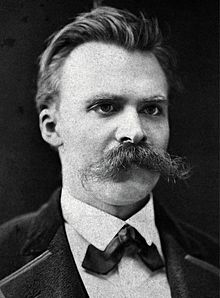
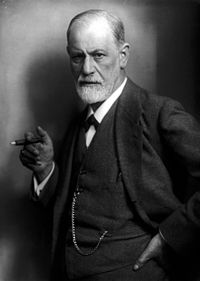
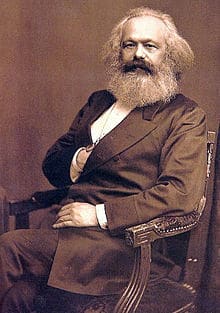


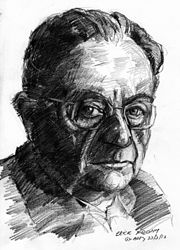

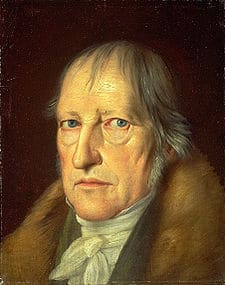

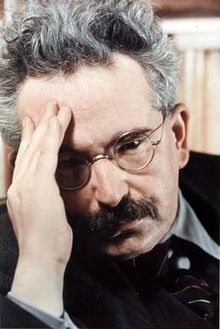
Ahhh! Das ist sehr cool! Ich mag Philosophie und Geschichte. Es gibt so viel zu lernen. Und in Deutsch zu lernen? So tolle!
ReplyDeleteIch wusste nicht dass Karl Marx in Deutschland geboren. Ich dachte er in Russia geboren. Ich finde dass interessant.
ReplyDeleteThis comment has been removed by the author.
ReplyDelete